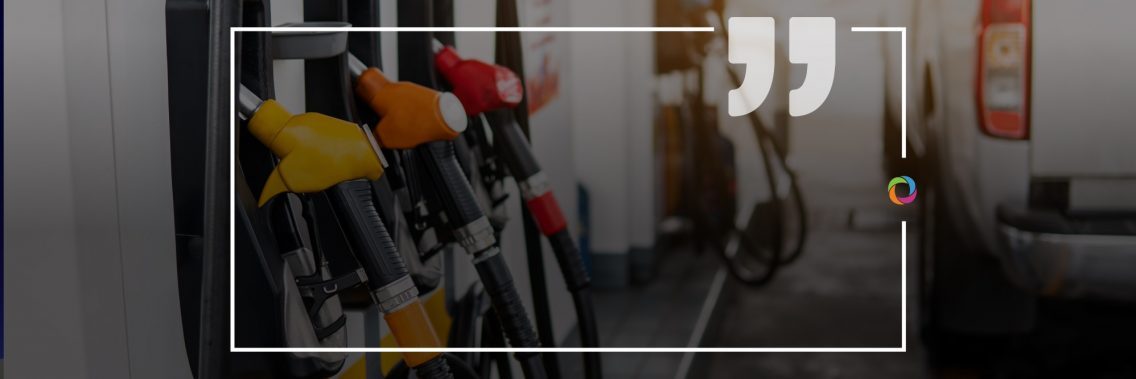“Nothing Burns Like the Cold” – this phrase has been on many people’s lips with the record-high increase of natural gas prices as winter arrives in the Northern hemisphere. While the crisis is global, Europe has been hit by several aggravating factors that could make the crisis more acute for millions of people. The reasons, the impact, and the long-term consequences of gas prices increases in Italy, France, Spain, and other EU countries were explained by several DevelopmentAid experts.
Key Takeaways
- The rapid increase in global energy demand is outpacing supply as global economic activity rebounds from the COVID-19 pandemic lows, leading to a shortage of energy supply
- Asian countries experienced high natural gas demand because of disruptions in coal availability while Brazil, affected by drought and less hydropower, increased its liquified natural gas (LNG) consumption
- Dependency is the core reason for the gas supply instabilities in Germany, Italy, Spain and other countries as the EU gas imports from third countries varied between 83% and 90%
- Resource-rich developing countries may benefit from increased investment in gas development
- Increased energy prices will be echoed by overall inflation. This negatively affects consumers’ purchasing power which again will slow down those economies affected by the ongoing pandemic
- The gas shortage helps countries to wean themselves off fossil fuel dependency and accelerates the transition to green energy.
Check-out experts’ insights below.
Why is there a gas shortage in Europe?

“A combination of complex factors emerging from both global and regional gas markets has contributed to the gas shortage experienced in Europe. Globally, the rapid increase in energy demand has outpaced supply as global economic activity rebounds from the COVID-19 pandemic lows leading to a relative shortage of energy supply. The gas shortage worsened as disruptions to transportation logistics affected LNG shipments, China and other Asian countries experienced high natural gas demand because of disruptions in coal availability contributing to rising demand for spot LNG shipments, and Brazil in the face of drought and less hydropower had to compete for LNG. In the region, the weather played a crucial part together with other factors. A long cold winter late in the 2020–21 heating season and a cold period in April followed by a relatively hot summer in the Northern Hemisphere coupled with low wind output led to increased gas demand and depleted gas inventories in Europe. The inability of producers to ramp up gas production to match a rapid increase in regional gas demand and low gas supplies by pipeline from Russia also played a critical part.”

“Dependency is the core reason for all instabilities of gas supplies in Europe. In recent years, the EU’s overall dependency on gas imports from third countries varied between of 83% and 90%, where the lowest import intensity was caused only by a temporarily decreased consumption due to an economic slowdown at the peak of the COVID pandemic. In the pie of extra-EU gas imports, Russia alone holds a slice of circa 48% being the major and most influential external supplier. Given the closure of the Groningen gas field, the UK’s transition from coal to gas and thus increasing domestic gas demand, and uncertainties with gas supplies from North Africa, amongst other factors, will continue to keep the EU’s dependency on Russian gas at high levels. Development of the LNG market proved incapable of significantly reducing the reliance on pipeline gas supply and, with Nord Stream 2 completed, Russia now offers a highly versatile variety of gas supply routes targeting almost all the regional consumption markets in Europe. So, on the one hand, we have Russia’s gas dominance over Europe and, on the other – attempts to impose the EU rule of law over Russian pipelines, to tighten economic sanctions against Russia and its satellite Belarus, and to make the concerns about Russia’s aggression towards Ukraine and Georgia more tangible. The upcoming winter season was just a too-perfect moment for Russia to show its gas power over Europe and to signal the potential outcomes if European attempts to deter Russian outlaw policies go too far. This shake-up of gas supply interruptions was just a warning, an old-fashioned blackmail, and we may well expect more. Russia’s modus operandi of using gas as its energy weapon has no obvious reason to cease.”
What will be the impact of soaring gas prices on poor countries?

“The nature of the impact of soaring gas prices on poor countries will depend on the unique circumstances of each individual country. In particular, increased global investment in natural gas development may lead to major project investment decisions and an increased appetite for risk capital for exploration investment in resource-rich poor countries with a positive impact on their gas industry supply chains. The impact will also depend on whether a country is a net importer or net exporter of natural gas. For net importers, the direct effect on the economy is felt as a rising import bill will put fiscal balances under pressure and exchange rates will depreciate in view of deteriorating growth prospects. Such countries have to balance the need to support growth against the need to contain inflation and currency pressures. The rising prices of natural gas and its substitutes including petroleum products such as kerosene, LPG, and gasoline will impact disproportionately on the household expenditure of the poorest households through their purchases of these products, exacerbating inequality in these countries. Wider economic and social ramifications will be felt if rising prices were to cause the curtailment or increased cost of the production of critical intermediate inputs to other economic sectors, thereby disrupting livelihood sources. In the case of net exporters, rising gas prices may lead to a significant gain in real income from gas exports or its substitutes, resulting in a net positive effect for economic activity. The increased export revenue may help improve government fiscal space in these countries and create an opportunity to improve their fiscal stance. The inherent cyclicality of the prices of gas and its substitutes, however, means that large revenues from soaring export prices can transmit significant volatility to government expenditure, leading to significant macroeconomic instability. For countries that already have an established robust macro-fiscal framework for saving part of their resource revenue in good times and can draw on these financial savings in bad times, they should be able to avoid transmitting revenue volatility to government expenditure and its negative economic effects.”

“Increasing gas prices will affect – and are already affecting – both poor and rich countries. There is no country in Europe where energy poverty has been eliminated and the economy not affected by the COVID pandemic. I would indicate four major impacts of the current gas crisis. Firstly, the problem of energy poverty will be deepened due to reduced energy accessibility and affordability by end-consumers. This includes not only direct gas supplies but also industrial and household consumption of electricity and heat, the production of which is still largely based on gas. A number of European countries are already facing a ten-fold increase in end-user energy prices. Secondly, the protection of the most vulnerable elements of society from the energy price shock will require more intense intervention from the state through the subsidization of utility costs. This means withdrawing cash from state and municipal budgets, which could otherwise be used to revitalize the slowed economies. Thirdly, the increase in energy prices is always echoed by an overall increasing price of goods and services. This negatively affects consumers’ purchasing power which again will slow down the economic resurrection not to mention that the most vulnerable households will be the most affected. And fourthly, the recent interruption in supplies of Russian gas for some might look like a good idea to get back to long-term gas supply guarantees. This is exactly the way chosen by Hungary and Moldova which have just concluded long-term gas supply contracts with Russia’s Gazprom. So, after over a decade of the gas market opening, unbundling, and triggered free trading, we are backing down to long-term supplies with, very likely, destination (this could be the reason for Hungary currently stopping reverse gas supplies to Ukraine) and take-or-pay clauses. One more goal scored by Russia in a match against the EU rule of law.”
Is this gas shortage a good reason to focus more on the green transition?

“The global gas shortage leading to rising prices of gas and its substitutes including coal is making renewable energy sources, solar and wind in particular, even more competitive as alternative energy sources. Investment opportunities for renewables that could not be developed without subsidy may become financially viable and attractive for commercial development under current market conditions. Clearly, the gas shortage has created not only an opportunity for countries to wean themselves off fossil fuel dependency but also to accelerate an inclusive green transition to ensure access to reliable and affordable renewable energy for all citizens. It has also highlighted the growing risk to the energy supply of the intermittent nature of renewable energy sources, solar and wind, and the need to develop reliable backup and baseload electricity from low carbon resources including hydropower and other methods of storing renewable power to ensure the reliability and security of the energy supply. The stronger economic competitiveness of renewable energy under current market conditions provides a crucial moment in history for countries to intensify the deployment of renewable energy technologies at scale and speed.”

“Green transition, energy efficiency, the massive introduction of hydrogen, new-generation nuclear developments, whichever strategy or a mix of these to reduce Europe’s dependency on Russian gas is the right way forward. This autumn should be the breaking point for those who for some reason still believed in Russia being a trusted energy partner. Being vitally dependent – and barely anything can be as vital as energy dependence – on someone who is completely unpredictable and who uses its military and energy power as a means of terror is a suicide solution. So, all the necessary transition to reduce Europe’s energy dependency is very long overdue. It is unfortunate to see that many actions with critically significant impacts were taken in the opposite direction. Germany’s reduction of domestic electricity generation capacities using nuclear power and then the systemic increase of dependency on Russian gas supplies by pushing through both Nord Stream pipelines is truly disappointing. It would not be too dramatic to say that it is a shock both to the idea of European solidarity and, more down to earth, European economies. Many reasons lurk deep behind such solutions, from pure business to very personal agendas of corrupt politicians but we have just started facing the effects caused and their overall magnitude is yet to be seen. It is thus the ultimate responsibility of all decision-makers, who are not yet feasting on Kremlin’s gas money, energy entrepreneurs, and the expert community to keep decarbonisation moving. Gas well serves as a fuel of transition towards more environmentally friendly solutions, but it is of crucial importance not to make this transition a perpetuum mobile or a never-ending Russian fairy tale.”
See also: Energy poverty expected to affect millions as prices ramp up
Check out open job opportunities in the gas sector here.

